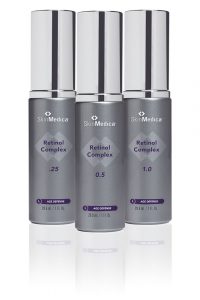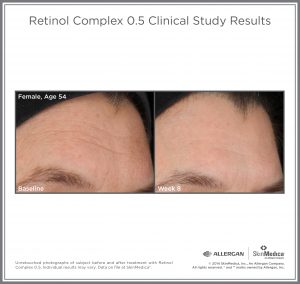What Are the Differences Between Retinols and Retin-A?
A Question and Answer session with Dr. Hasen
Patient Question: There are so many anti-aging products on the market claiming to treat wrinkles. What are the differences between retinols and Retin-A, and which one should I use?
Dr. Hasen’s Answer: Great question!
There are so many skin care and anti-wrinkle treatment options available now, from prescriptions to drug and department store brands to medical grade lines. It can get confusing!
Our office in Naples carries retinols from SkinMedica. SkinMedica is a medical grade skin care and anti-aging product line sold only at physician offices. As a result, the products are stronger than anything you can purchase at a drug store or department store.
There are a few key differences between Retin-A and retinols:
Retin-A:
- Prescription product derived from retinoic acid, which is a synthetic form of Vitamin A
- Deliver large amounts of active ingredient to skin at one time, which can result in side effects such as peeling and redness (think of it as a “bomb” of product in your skin)
- Typically not covered by insurance
Retinol:
- Non-prescription, natural form of Vitamin A
- Have elegant delivery systems to increase tolerability
- The SkinMedia retinols have a special formulation to allow the retinol to bypass the layers of the skin where irritation can occur and deliver the active ingredients directly to the layers of the skin where it is needed (think of this as a slow, controlled release of product)
- Due to better delivery system, patients experience fewer side effects

Why Use Retinols Instead of Retin-A?
Retinols are the cornerstone of a skin care regimen. They speed up how quickly our skin produces new cells, which helps smooth lines and wrinkles and enhance tone and texture of the skin.

Bottom line, I recommend the SkinMedica retinols to my patients. In head-to-head studies of the SkinMedica products to prescription retinols, the SkinMedica retinols were equally effective with fewer side effects. Plus, SkinMedica products are less expensive than the prescription Retin-A products, so it’s a win-win!
Ask the Doctor!
Have a question for Dr. Hasen? Feel free to leave it in the comments below, and he may address it in a future Q and A.

Leave a Reply